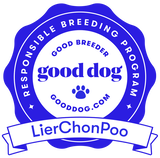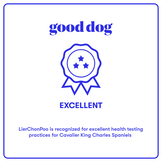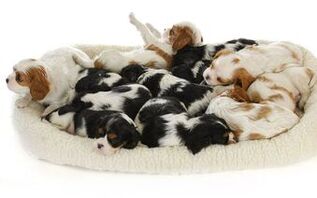 Many families prefer to adopt from a local shelter or rescue, but quite often it's impossible to find Cavaliers or low shedding small dogs because they are rarely surrendered. When that option has been exhausted, you have to start the search for a breeder. Maybe you know exactly what type of dog you want down the the exact size, sex and color - or maybe you're just beginning your search and narrowing between similar breeds such as Cavachons and Cavapoos. While you are choosing your breed, it's equally important (if not more important) to decide what type of BREEDER you are looking for. Many people will say they want a "reputable breeder" or an "ethical breeder" without really knowing what that means or how to really figure out what type of breeder you've contacted. Hopefully you've also learned that price alone is not an indicator (we've seen lots of poorly bred dogs sold to unsuspecting buyers for the same price or more than well bred dogs). We hope this post will help you figure out what type of breeder you're looking for. While we know there are exceptions to every rule, the majority of breeders fall squarely in to these three categories:
0 Comments
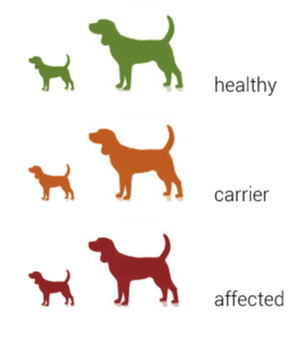
This blog post will cover why it's so important to purchase a puppy from a breeder who does DNA tests on their breeding stock and what to look for when provided a copy. We will cover in a future post why you might consider DNA testing your own dog, especially if you rescued, purchased from a puppy store or bought a puppy without researching the breeder.
The Cavalier King Charles Spaniel is prone to numerous health conditions, many of them both financially and personally devastating for their owners. Years ago, we didn't have DNA testing available to help us identify dogs that were at risk for passing on serious genetic defects. Today, that's not the case and therefore any reputable breeder will be able to discuss with you the role that DNA plays in their breeding program and provide you with testing results. Before discussing specific genetic conditions that impact this breed we want to cover the basics of understanding whether a dog is at genetically clear (healthy), a carrier (healthy but can pass on the disease to puppies) or affected (unhealthy and will pass on the disease). CLEAR - This is the gold standard. This is a dog who is clear of any genetic defects. This means they are not personally at risk and do not carry any genes for genetic defect that can be passed on to their puppies. CARRIER - A carrier is a dog who carries one (1) gene for a genetic defect. Because they only carry one gene for this defect it will not affect them (they will never develop the defect) but they can pass it on to their puppies. Some consumers mistakenly believe that carriers should not be bred but this is not case. Carriers can safely be bred but only to a dog who is clear for that defect. If we removed all carriers from our breeding pool we would encounter other problems with inbreeding. Two carriers should not be bred. AFFECTED - A dog who is at risk (or affected) is a dog who carries 2 copies of the gene for a trait and therefore is at risk for the disease. Although not ideal, this dog can still be bred to a dog who is clear as they will produce a litter of carriers. That being said, you do not want to purchase a dog who is affected for a genetic condition as that dog will likely become symptomatic of that condition. If your breeder doesn't test genetically then you will have no way of knowing what you are getting. This digram helps illustrate the breeding of clear, carriers and affected dogs.
Now that you have an understanding of clear, carrier and affected you need to know what genetic tests are important for this breed. At a minimum, a reputable breeder should be testing for the following:
CAVALIER KING CHARLES SPANIEL -
To see a sample Embark DNA report, please check out this post where we provide a report from one of our dogs. A few final words for those looking for a hybrid puppy (Cavachon or Cavapoo). First, be very wary of the hybrid breeder who claims they don't need to DNA test their dogs because crossing two breeds will eliminate the genetic disorders. This is false. This breeder is either being deceptive or has just shown their ignorance. For example Degenerative Myelopathy (DM) which is a devastating neurological disorder that doesn't appear until a dog is older (and his/her puppies have already been sold). This disease is similar to ALS or Lou Gehrig's in humans. This disease also appears in both poodles and Cavaliers; therefore, a hybrid breeder who is not testing both parents for the common disease(s) is setting up puppy owners for heartbreak. Secondly, this is where the difference between a F1 puppy and an F2 puppy is really important. With F1 puppies many of the diseases can be eliminated if they are not a common disease; however, with F2 puppies you bring the disease possibility back. This often confuses people so here is an example: F1 Cavapoos - A purebred Cavalier Spaniel is crossed with a purebred Poodle. The Cavalier Spaniel is affected for DM. The Bichon is clear for DM. As you can see from the chart above, 100% of their offspring will be a carrier for DM. They will not have the disease but they will pass it on to their hybrid offspring. F2 - An uneducated breeder has two F1 Cavapoos. Both were from a situation similar to the above and carry for DM but don't show signs of the disease. The breeder doesn't DNA test because they are breeding hybrids and were told it isn't necessary or is trying to increase profits by not testing. They breed these dogs together and again referring to the chart above more than 50% of their puppies will inherit and be affected by this disease. The new owner is clueless and feels confident in this breeder because they received a one-year health guarantee for a condition that will not appear for 7+ more years. DNA testing alone does not make a reputable breeder. There are other breed specific heart, hip, eye and related tests that should be performed and provided. For more information on those tests, please see our posts on the OFA as a part of your puppy search.
If you would like to learn more about DNA testing your dog before breeding or to uncover any potential health risks, we highly recommend Embark as they handle all of our DNA testing and are a paid advertiser of our educational content. Please review this post that provides Embark discounts and a copy of an Embark report.
We talk a lot about DNA and want to share a quick post on our preferred DNA provider, Embark Veterinary, Inc. We recommend Embark to the following people:
While there are several DNA companies on the market, we specifically use and sought out Embark as a paid advertiser of our content because of the following:
Attached is a sample page from our Embark DNA report on KoKo that shows she's DNA clear for all conditions. This is the gold standard for breeding.
If you are searching for a puppy, please read our post on DNA TESTING and the role it plays in responsible breeding. If you are considering one of our puppies, please email us and we will gladly share our full Embark DNA reports with you for your review. If you are a new dog owner and want to test your puppy for any health conditions, please use the link below for current promotions being offered by Embark.
If you Google "MegaChon" you won't find much, in fact it will auto correct to MegaCon (comic book and sci-fi conventions) but we promise this is a real thing. For proof, we've asked a few owners to share photos of their beloved MegaChons. So what exactly is a MegaChon? It's simply a Cavachon who is significantly larger than expected and larger than both parents. They aren't fat, they're just big. Some are long. Some are tall, Some are both. When I had my first MegaChon (Oattie, who is currently 12 years old and 25 pounds), I thought he was rare! How did a dog bred from an 11 pound Bichon and a 14 pound Cavalier hit 25 pounds in 18 months? Over the years, thanks to the many Cavachon and related dog forums, Oattie and I have learned we are not alone and in fact there are many MegaChons roaming the earth and even those who were originally hoping for a smaller dog end up loving this overgrown couch potatoes (although many of us wear of explaining that they aren't a small labradoodle). When Oattie was born, he was not the largest puppy in the litter. The others ended up around 14-15 pounds. At that time, we didn't have doggy genetics but today we do and so this phenomenon can actually be explained. Before getting in to the genetics, there is one obvious (and somewhat dubious) explanation for some MegaChons. If you did not see the parents, it's simply possible that the breeder is breeding a Bichon and Cavalier that don't meet their breed standards (i.e. they are larger than what's considered normal per the AKC). Breeders may specifically do this in hopes of larger litters as larger females are often able to successfully carry more pups. If you truly want a smaller dog (perhaps for travel purposes), make sure you ask to see both parents and get their adult weight and size as well of photos with them compared to objects in the home (it's sometimes hard to determine size without seeing it relative to another object). Now, assuming you know your dog's parents were standard (or even small) for their size then you can rest easy knowing that your MegaChon is simply a gentic phenomenon much like the 6'2" son I have (I'm 5'3"). Dog size is a complex trait and despite the best guess of even the most experienced breeder, variations do occur. Approximately 85% of dog size is genetic but the remainder is environmental (nutrition, etc.) or unexplained according to Embark DNA panels. In the case of the MegaChon, I've provided a couple of screenshots to demonstrate how this can occur. Screenshot #1 - Layla. Layla is one of our female Bichons weighing in at just under 10 pounds (exactly what Embark predicted her adult weight would be). This puts her well within breed standards BUT you can see from the screenshot below that she carries some alleles for larger size traits. Screenshot #2 - Bentley. Bentley is one of our male Cavaliers who weighs just over 15 pounds despite an Embark prediction that he will weigh 21 pounds. Standard weight for Cavaliers is 13-18 pounds so he's within range but smaller for a male. We chose Bentley for this comparison b/c his genetics differ from Layla although both are average or small. As a breeder, logic might have us assume that a Bichon weighing in at 10 pounds being bred to a Cavalier weighing in at 15 pounds will produce puppies somewhere between 10-15 pounds. The breeder might also make educated guesses within the litter about future size based on birth weight, sex and whether they carry more Cavalier or Bichon genes in appearance. Prior litters are also helpful in these educated guesses. Many times, the breeder will be right. However, looking at these screenshots we can now understand that our lovable MegaChons are nothing more than a combination of genetics where a puppy ends up with all the "larger" or "intermediate" genes from both parents and suddenly outgrows them both. In our hypothetical one puppy could carry for Larger, Larger, Intermediate, Intermediate and Larger from two relatively small parents. Combine this with environmental factors and you can have an unexpected Magachon.
Those of us with MegaChons would not change them for the world; however, if you specifically want to avoid a MegaChon (perhaps for purposes of in-cabin air travel) or you specifically want to find a MegaChon (they are a great alternative to larger Doodle breeds), Embark's DNA panel can help eliminate or increase your chances by having your prospective puppy screened before purchase. While their size predictor isn't 100% accurate, it's truly the best guess at how much your adult dog will weigh! 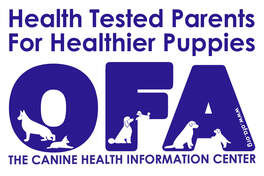 TThe OFA - or Orthopedic Foundation for Animals is a fantastic organization that can really help you in your puppy search. Whether you are searching for a healthy Cavalier King Charles Spaniel or a related hybrid, don't neglect to check the OFA for information on your puppies parents. Here's what you need to know: OFA VERSUS AKC - WHO DOES WHAT? - There is a huge difference between the AKC and the OFA. The AKC is the American Kennel Club. This organization is responsible for keeping the registry of purebred dogs in the United States. The fact that a dog is registered with the AKC means nothing more than the fact that it was born of two purebred dogs who are also registered. While purebred parents is important (even in hybrids as the point is an intentional cross of two purebred dogs), it is not an indicator of health, solid DNA or anything else. In fact, there are many AKC registered dogs that are the result of overbreeding, are unhealthy and who don't meet the breed standard as recognized by the organization. On the other hand, the OFA is now the repository for both DNA and medical testing of dogs. Although initially this only applied to orthopedic type testing (hips, patellas), they have expanded their mission “to improve the health and well-being of companion animals through a reduction in the incidence of genetic disease.” HOW CAN I USE THE OFA IN MY PUPPY SEARCH? - In order to use the OFA to search your potential puppies genetic and medical history, you first need the full name or registry number for both parents. Anyone selling purebred Cavaliers will have this readily available. Those breeding F1 Cavachons and Cavapoos may also be able to provide you with this information. Registry numbers can also be pulled from AKC pedigrees, as can full names. If your Cavalier breeder refuses to provide you this information, this is a potential red flag. If a hybrid breeder doesn't have the information, it's worth a conversation to make sure they are DNA testing their breeding stock as well as having them screened for health issues such as hearts, hips, eyes and patellas. Once you have the information, proceed to www.ofa.org and follow the instructions below:
We hope this post was helpful in explaining how the OFA can be a great resource for anyone looking to invest in a properly bred puppy. In future posts, we will break down both DNA and OFA testing results by Cavalier, Cavachon and Cavapoo as well. Please feel free to email us if you have any questions on the search for your perfect pet. 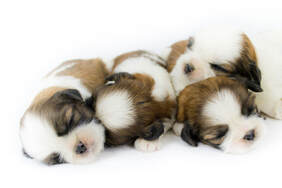 While the internet is an amazing tool, it's actually made the process of finding the perfect puppy incredibly challenging. A decade ago, most of us would open the local classifieds and search in the animal section for a puppy that interested us. Today, and virtually overnight, anyone can put up a website and look like a reputable breeder. The introduction of DNA tests, shipping with flight nannies and designer dogs makes picking a puppy often feel overwhelming. There are simply too many options. So, how do you make the right choice? Here are our suggestions:
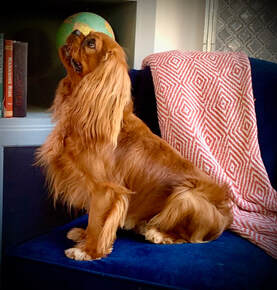 Many people never think to ask a breeder why they breed dogs. The answer can be enlightening and help identify those breeding with purpose versus those breeding solely for profit. If you would like to know why we breed dogs, here is what we want you to know. First and foremost please know that dog breeding is a hot topic - especially in our family where so many of us have served on our local SPCA Board giving both our time and money to help animals in our local shelters. We understand that many of our fellow board members and friends have views that range from "adopt don't shop" to "breeding is unethical." I was even recently told that I am single handedly killing shelter dogs by breeding other dogs. As much as we agree with the fact that shelter dogs deserve a happy home and another chance, we can't accept the blame for our shelters being overcrowded with unwanted animals, nor will we allow those who feel that way to deter us from our "why." Puppy mills, irresponsible owners and unethical breeders who do not require the return of their dog are to blame for the existence of animals in our local shelters. Reputable breeders did not create that problem - it's what sets us apart. We fully support our shelters and we know that for the most part, shelter dogs can make incredible companions. Our family has had several shelter dogs throughout our lives and each one was well loved. However, not every home is suitable for a shelter dog. Some may need a smaller dog, some may need a dog less prone to cause allergies and some may simply not have the knowledge or energy to cope with a dog that has been surrendered for behavioral problems. Some people simply want to know their puppies parents, meet the breeder, know that everything has been done to reduce future behavioral issues with early socialization and so on. We are not here to compete with shelters. We believe all dogs deserve love. The people who adopt our dogs have told us time and time again that they've been looking for years in shelters and rescue but have always come up empty handed. When we find a Cavalier or Cavalier hybrid in a shelter, we make sure it gets adopted (or we rescue it). Our clients are generally empty nesters who can't physically handle a larger shelter dog or unknown behavior issues, families who have known the love of a Cavalier and can't live without them in their lives, those with the need for a less allergenic breed or those who are first time dog owners and simply need the support and resources of a reputable breeder. These families represent our "why." Our decision to breed as a family did not come easily and we were very specific in the gap we wanted to fill. After falling in love with a Cavachon we started searching endlessly for others in rescue, shelters and re-homing sites. Years and years went by (literally), and we could not get our hands on another Cavachon. In fact, at one point my sister tried to steal my Cavachon - she was that desperate for what she deemed "the best dog ever." However, we were lucky enough to eventually welcome an awesome Cavalier in to our household. We quickly realized that the Cavalier was in large part what made the Cavachon such an incredible breed. This is how it all began. We decided to place breeding dogs within our own family (I'm the oldest of five and also have five children) and to breed both Cavaliers and Cavachons. Even within the breeding community, we took heat for this decision (if you ever want to see something more heated than a 2020 Presidential election, bring up "hybrid breeding" at a dog show and watch the fireworks begin). We worked to identify DNA clear dogs with great bloodlines and we've committed to never overbreeding a dog. As a result, we can guarantee your dog from known defects or we will return your money - it's that easy. Since that decision, we've grown to include loving Guardian Families within our program because again, we believe every dog deserves love. Our dogs are not kenneled, they are not used, they are not forced to breed if they are unhealthy, unwilling or simply don't like being a mom (we've yet to have a male refuse - just in case you were wondering). In conclusion, we breed because we have a sincere desire to improve the Cavalier King Charles Spaniel - to do comprehensive DNA and health screenings to reduce the health problems that plague this breed from years of inbreeding. We are not out to create the perfect show dog, we strive to create the perfect pet. We breed because we know we are offering a dog that can't be found in our shelters. We breed because we know we can offer our families a puppy they deserve - one that is socialized, healthy and ready to become the perfect pet. We breed because we can afford to - we all have separate income sources unrelated to breeding so we don't need to cut corners, skip health screens or breed dogs who candidly should be retired. We breed because we love these dogs and are willing to take the heat of those who always have something negative to say in order to share our puppies with those who we know will love them as much as we do. This is our why. |
FTC DISCLOSURE
This blog contains affiliate links. I may earn commissions from qualifying purchases made from links on this blog. We do not recommend any products that we do not purchase and use for our dogs. Categories
All
Archives
April 2024
|
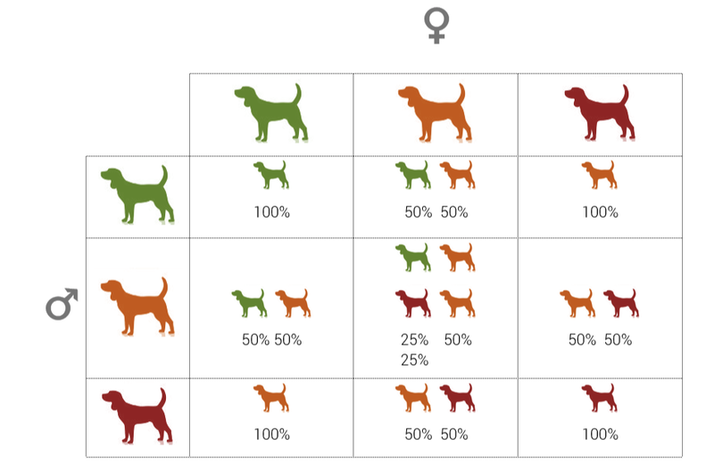


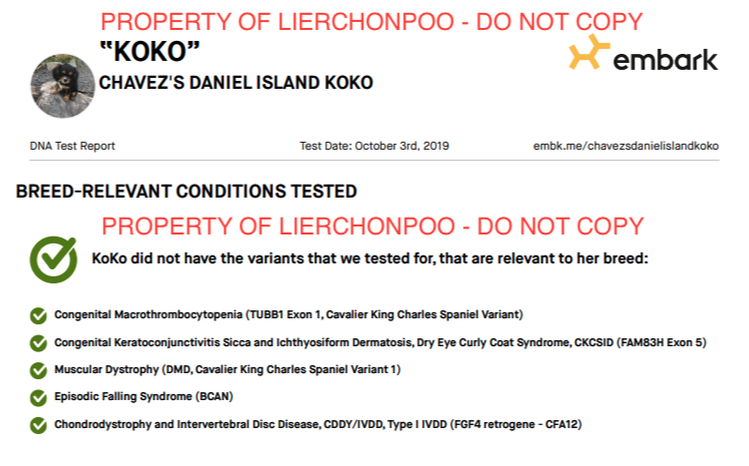
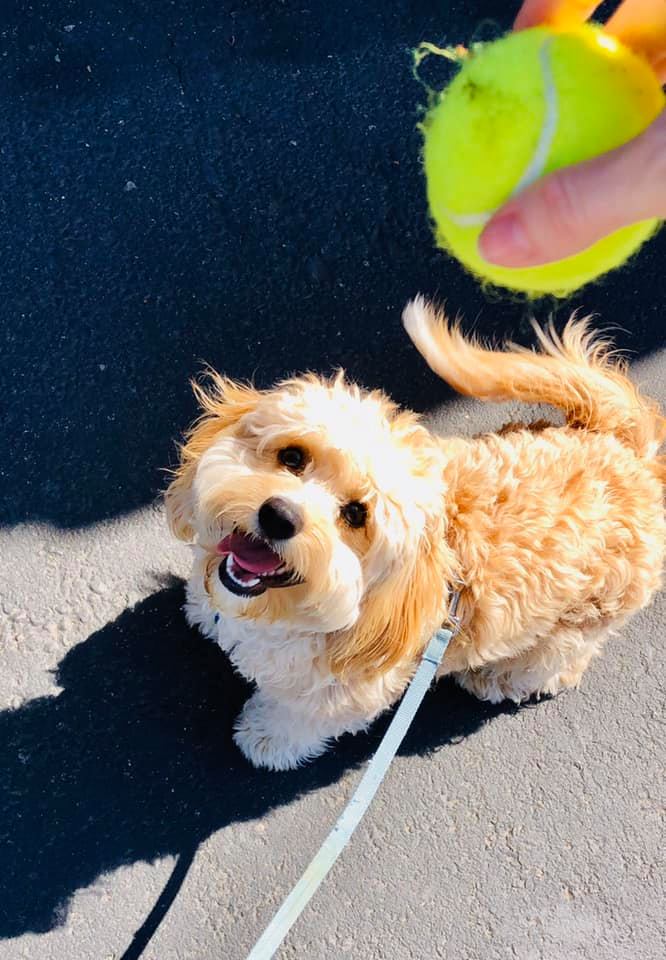
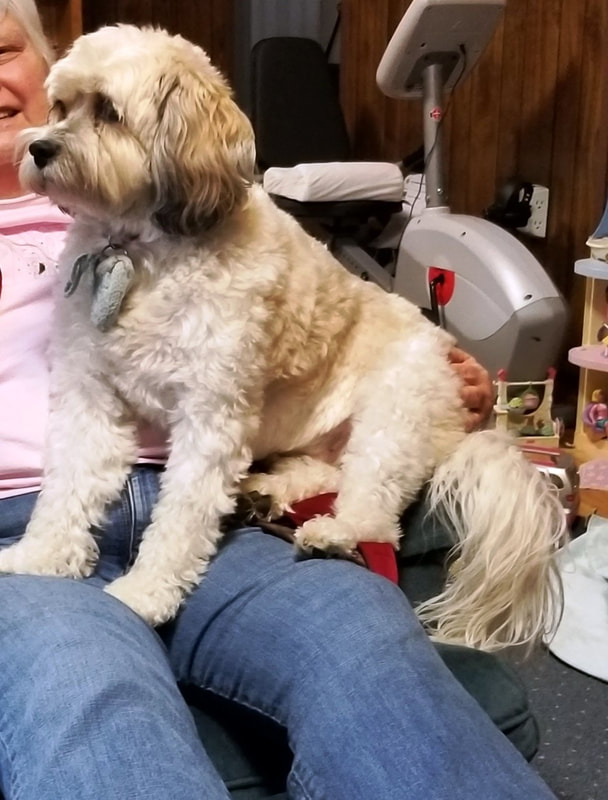
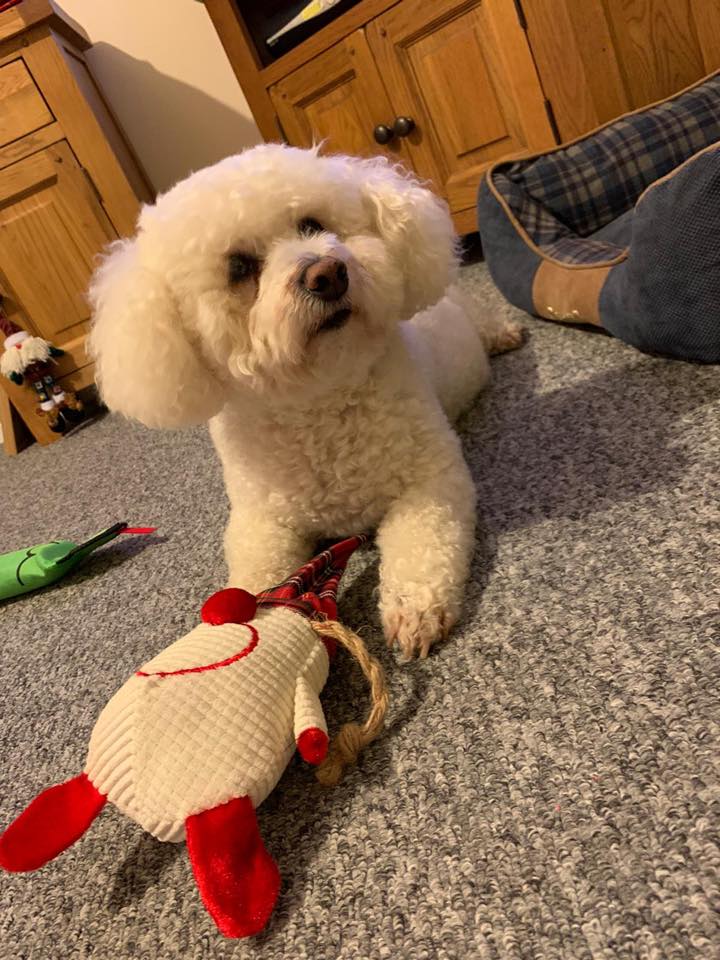
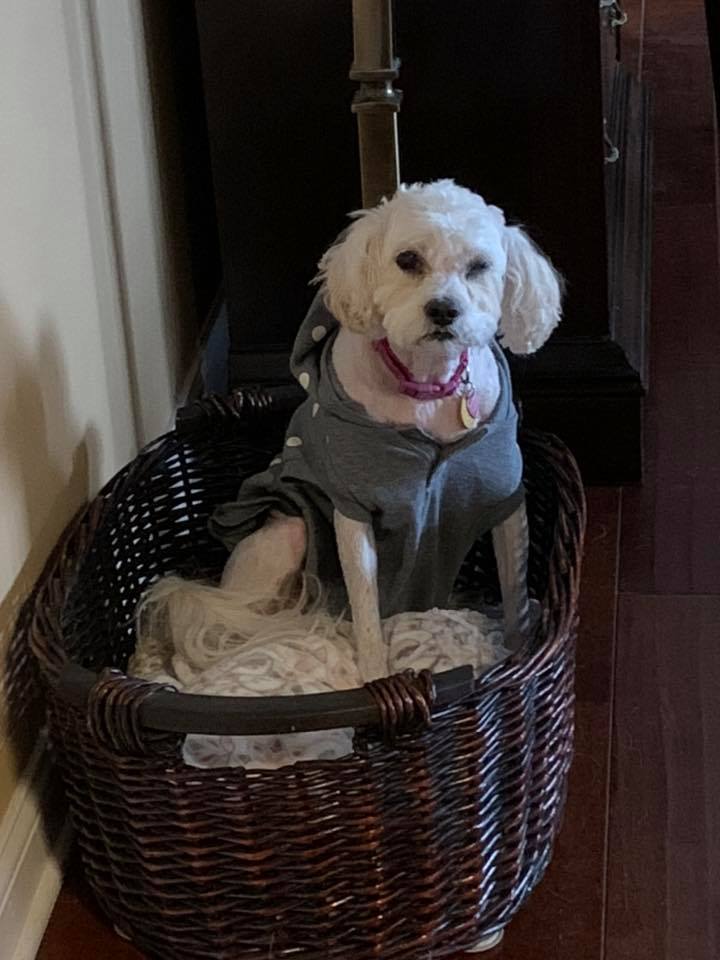
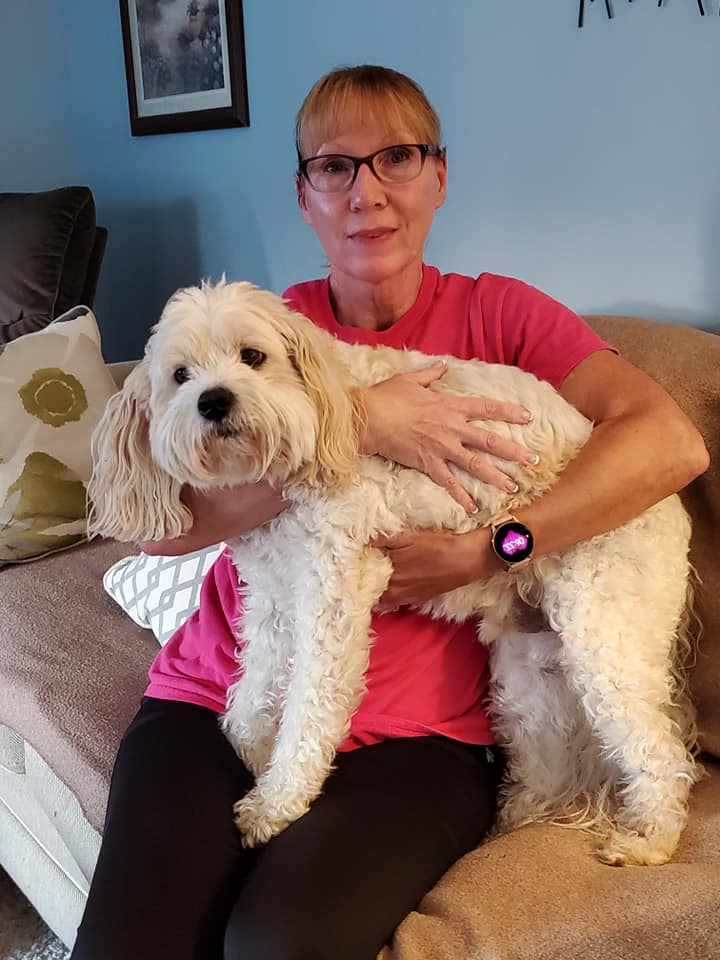
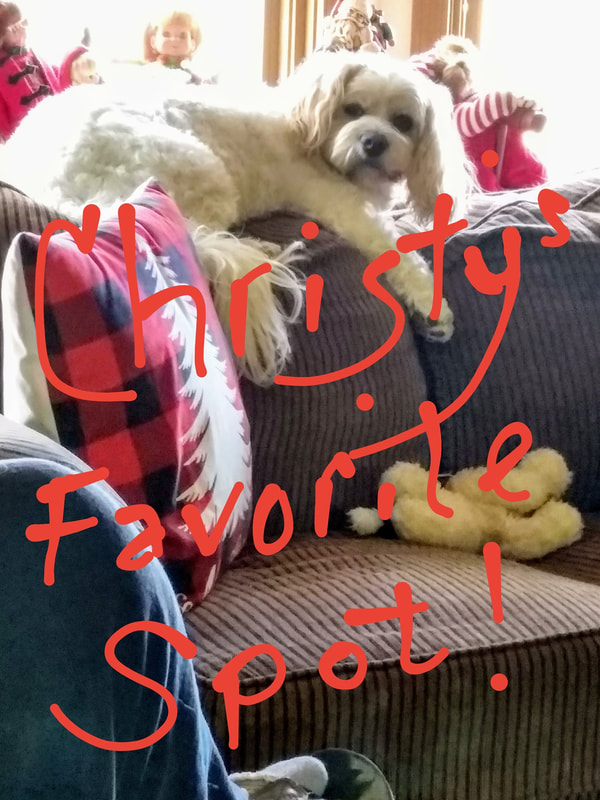
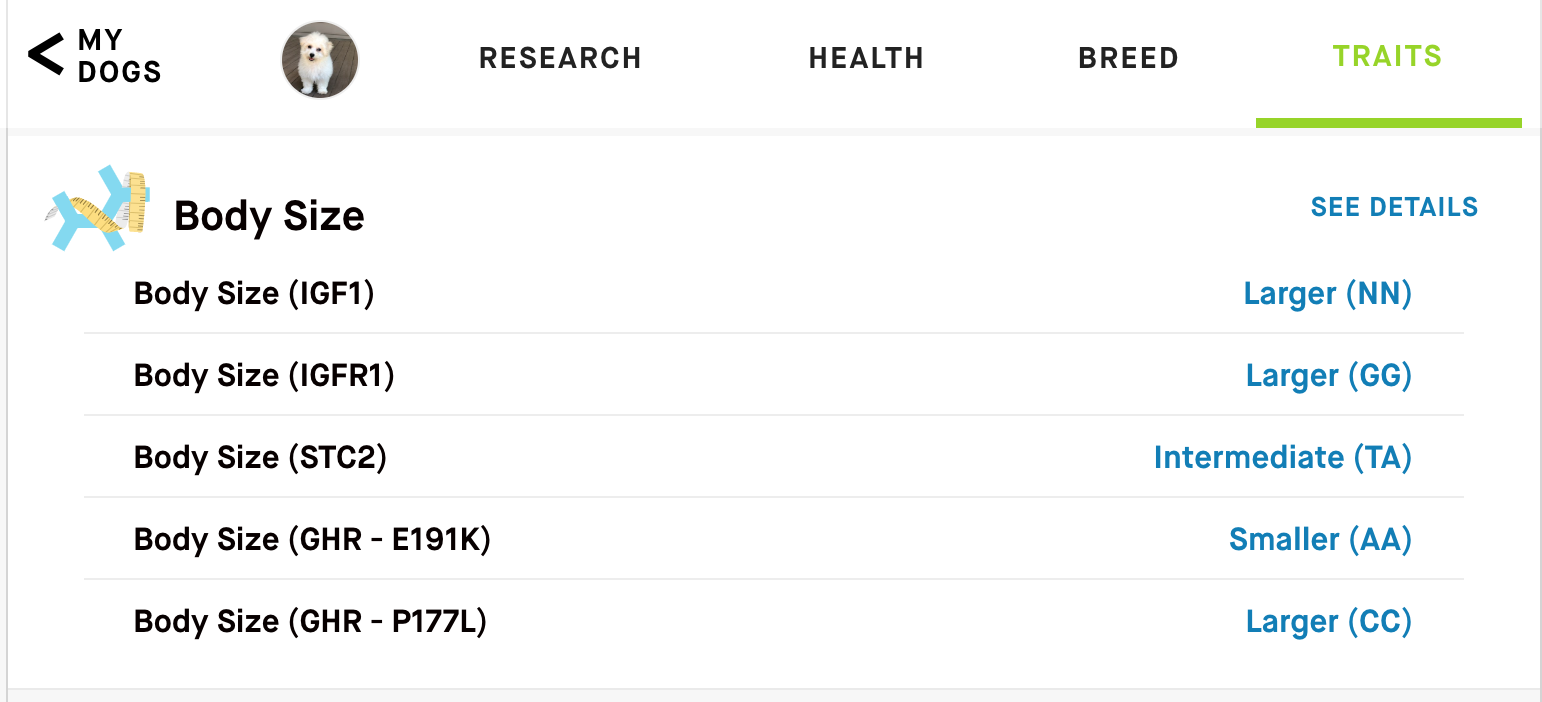
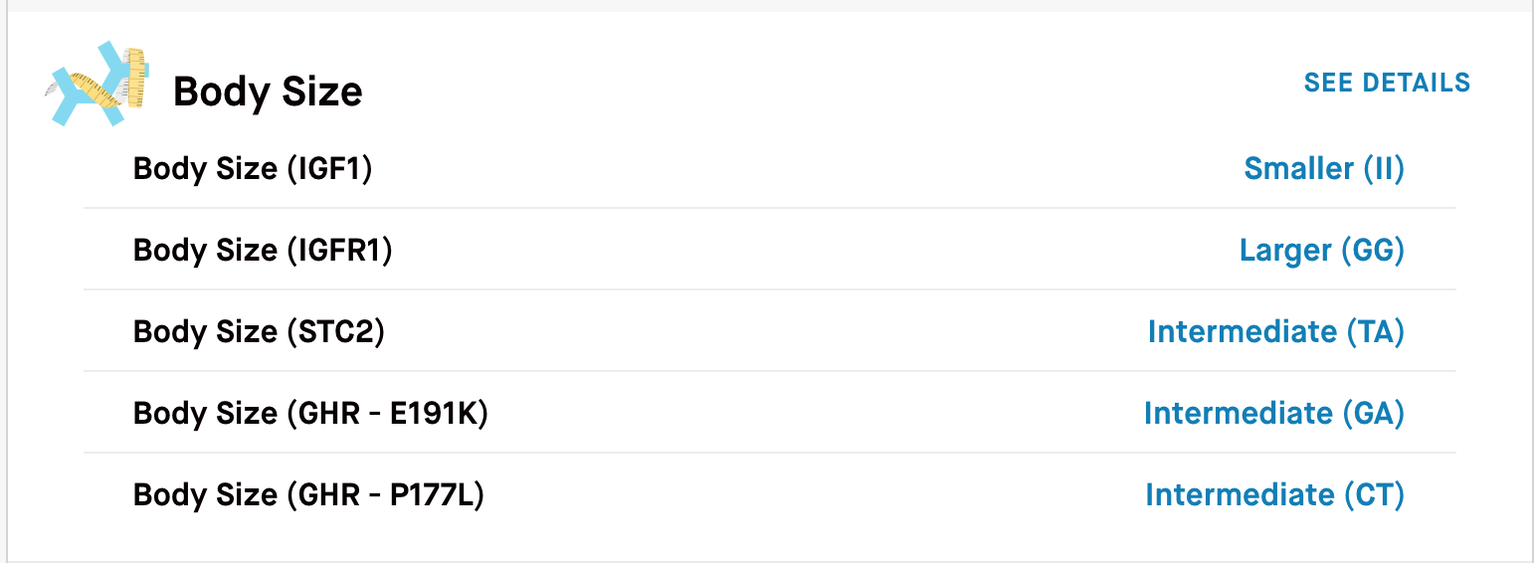
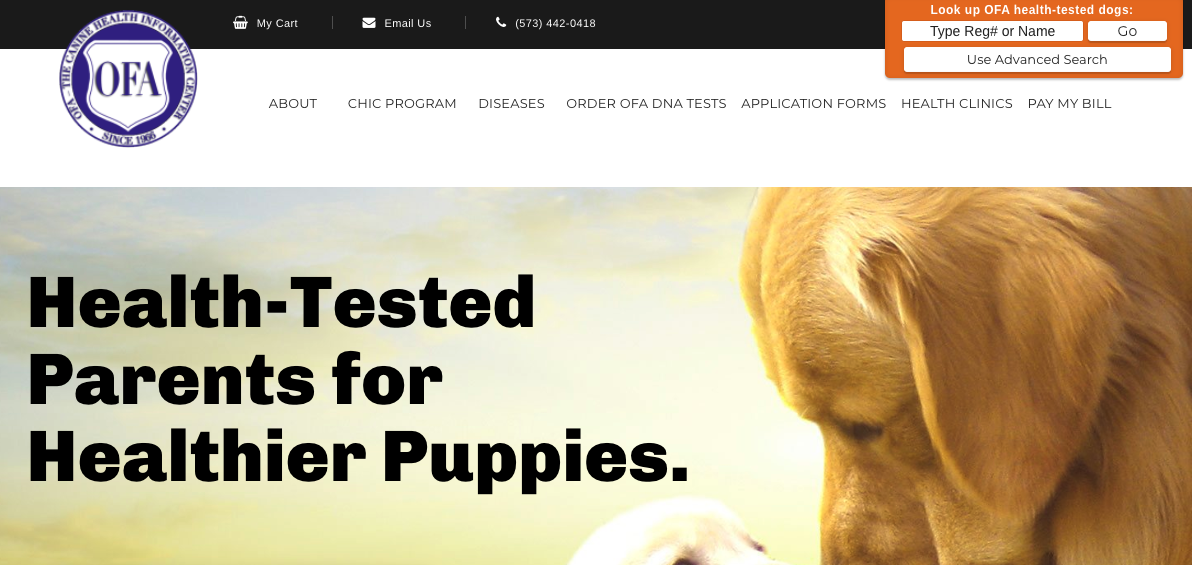
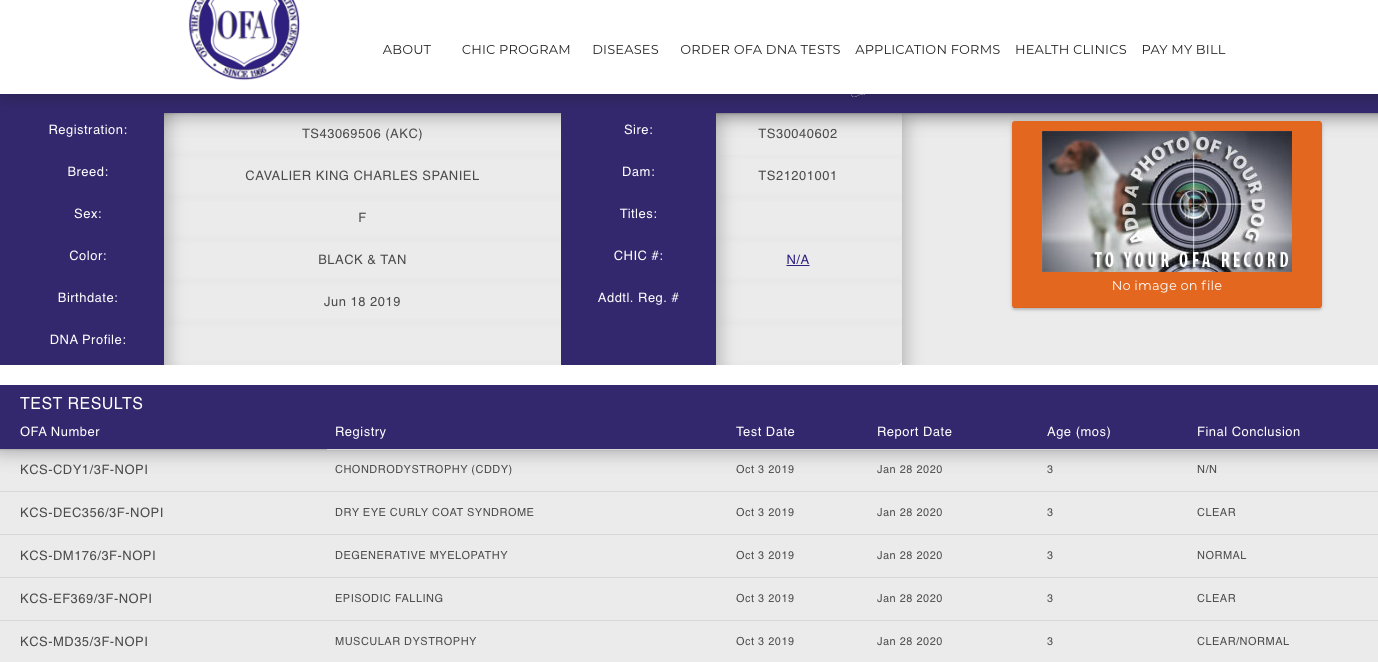
 RSS Feed
RSS Feed
